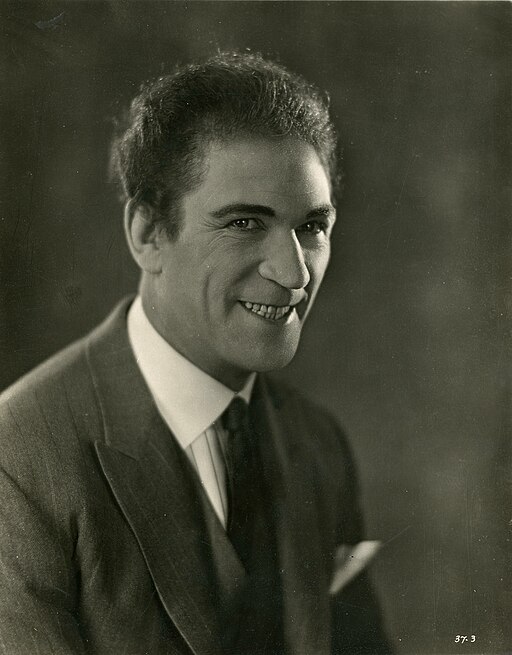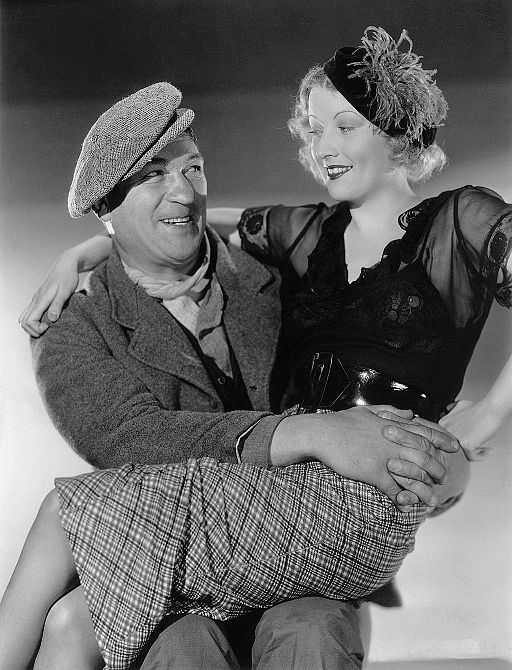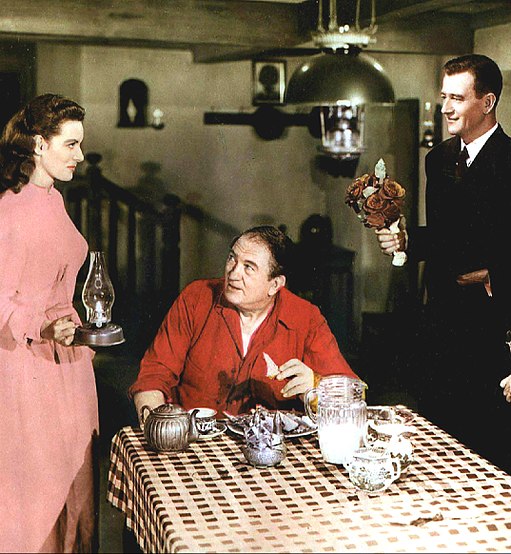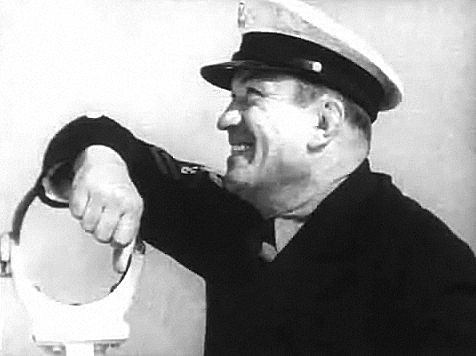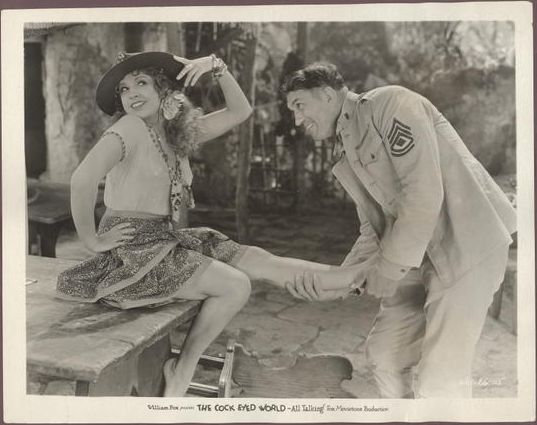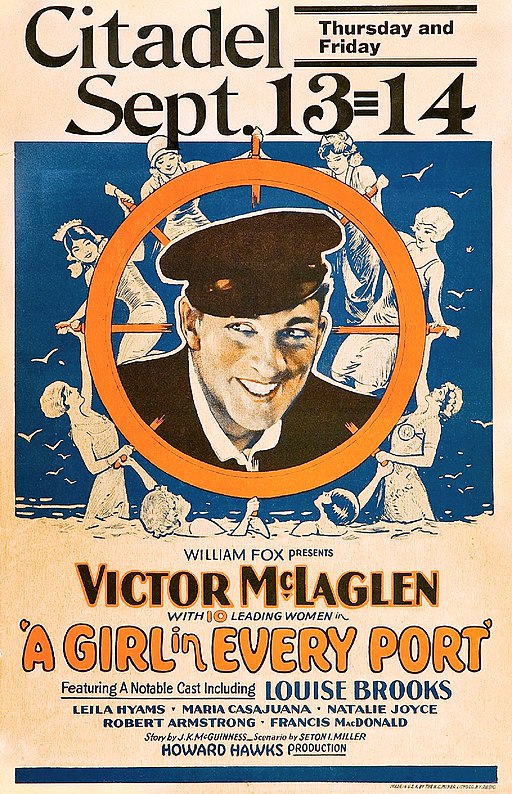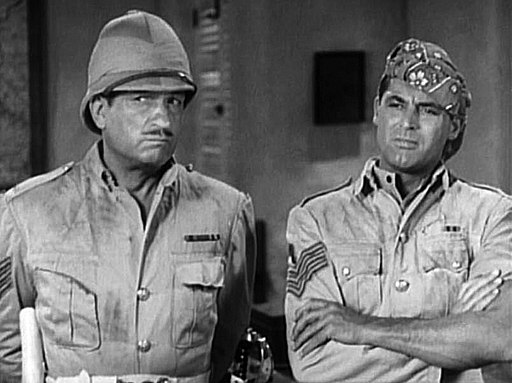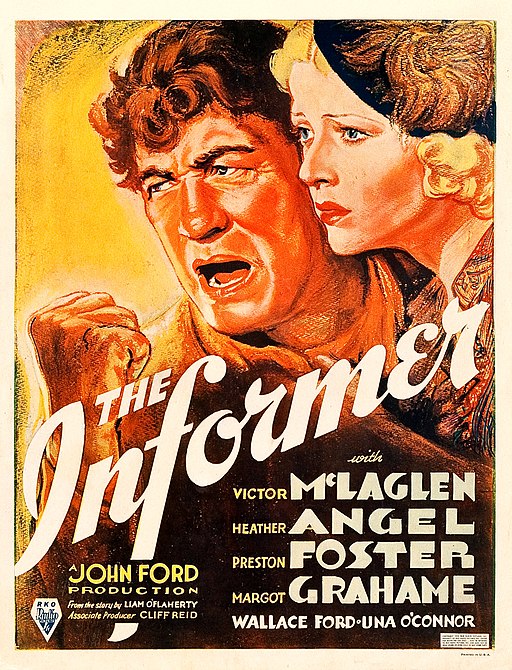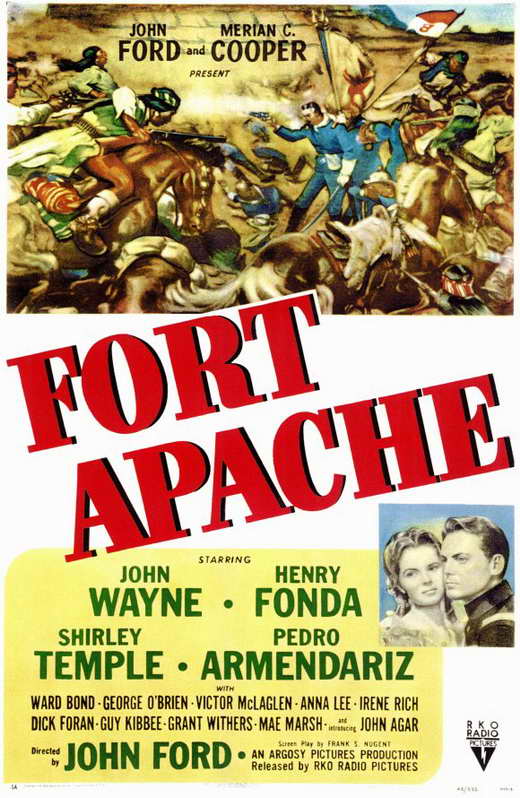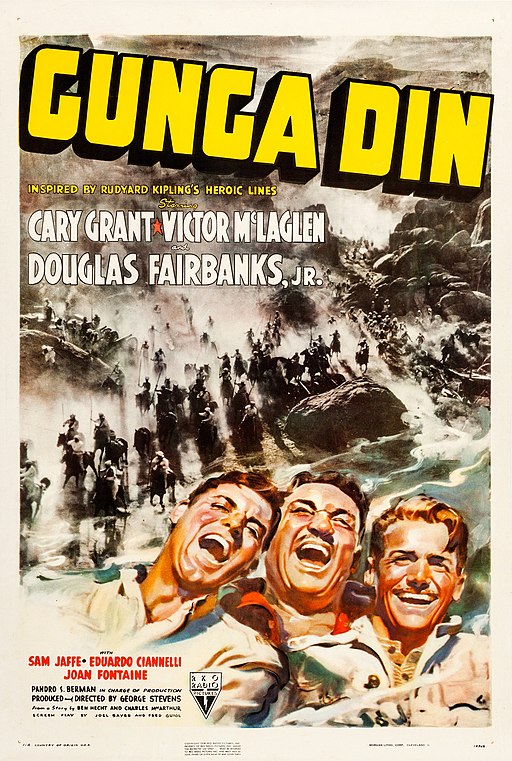Victor McLaglen
back| Full Name | Victor Andrew de Bier Everleigh McLaglen |
| Stage Name | Victor McLaglen |
| Born | December 10, 1886 |
| Birthplace | Tunbridge Wells, Kent, England |
| Died | November 7, 1959 |
| Buried | Forest Lawn Memorial Park, Glendale, California, USA |
| Married to | Enid Lamont (1919–1942; her death), Suzanne M. Brueggeman (1943–1959; his death) |
| Children | Andrew McLaglen (son), Sheila McLaglen, Claudia McLaglen, Kenneth McLaglen, Arthur McLaglen, and five others (from his first marriage) |
| Notable films | The Informer (1935) - The Quiet Man (1952) - Gunga Din (1939) |
Victor McLaglen
The towering, rugged character in Hollywood’s classic cinema
Victor McLaglen, born on December 10, 1886, in Tunbridge Wells, Kent, England, was a formidable actor known for his robust on-screen presence. His early life was adventurous; he served in the British Army during the Boer War and later lived in Canada, where he pursued careers in wrestling and acting.
With his 6 feet 3 inches (1.91 meters) his height, combined with his robust physique, contributed significantly to the imposing characters he often portrayed in his films.
McLaglen's film career began in the silent era, with his imposing physique and expressive features making him ideal for various rugged roles. He transitioned smoothly into talkies, gaining fame in the 1930s, notably for his Academy Award-winning performance in John Ford's "The Informer" (1935), where he portrayed a tormented Irish revolutionary.
He frequently collaborated with Ford, appearing in classics like "The Quiet Man" (1952), in which his spirited portrayal of 'Red' Will Danaher showcased his talent for blending physicality with humor. His career spanned both the silent and sound eras, with memorable roles in films like "Gunga Din" (1939) and "She Wore a Yellow Ribbon" (1949).
Known for playing tough, often brawny characters, McLaglen was a fixture in adventure and Western films. His larger-than-life persona and ability to convey depth and vulnerability in his characters made him a beloved figure in Hollywood.
Related
Victor McLaglen
Biography, analysis and all his movies
Victor McLaglen was a British-American actor known for his robust characterizations and commanding on-screen presence. Born in England and raised in South Africa, McLaglen's early life was as adventurous as the characters he portrayed. He served in the British Army during the Boer War and later moved to Canada, where he became a wrestler and a stage actor.
Early Career
McLaglen's film career began in the silent era, with his imposing figure and physicality landing him numerous roles as a villain or a tough guy. He transitioned into sound films with ease, thanks to his deep, gruff voice and larger-than-life persona.
Rise to Fame
His performance in John Ford's "The Informer" (1935) won him the Academy Award for Best Actor. The film was a critical success and established McLaglen as a leading actor. He frequently collaborated with Ford, appearing in several of the director's films.
Notable Performances
McLaglen is perhaps best remembered for his role in "Gunga Din" (1939), where he played a brawny, good-natured sergeant, and in "The Quiet Man" (1952), another collaboration with Ford, starring alongside John Wayne and Maureen O'Hara.
Later Career and Legacy
In his later years, McLaglen continued to work in both films and television, often playing tough but lovable characters. His career spanned over four decades, during which he became known for his rugged character roles.
Cause of Death
Victor McLaglen passed away on November 7, 1959, at the age of 72. The cause of his death was attributed to a heart attack. McLaglen, known for his robust and larger-than-life on-screen presence, had a career that spanned both the silent and sound eras of cinema. His passing marked the end of an era for the kind of rugged, brawny character roles he often portrayed.
Victor McLaglen’s successful transition from silent movies to sound movies:
Victor McLaglen's transition from silent films to sound films was notably successful, a feat that not all silent film actors managed during the seismic shift in the film industry during the late 1920s and early 1930s.
Silent Film Era
McLaglen began his film career in the silent era, where his imposing physical stature and expressive facial features made him an ideal fit for the types of robust, often antagonistic characters that he portrayed. He had the physical presence and acting style that translated well to the silent screen, where exaggerated expressions and gestures were key to storytelling.
Transition to Sound
The introduction of sound in movies marked a significant turning point in cinema, often referred to as the "talkies." This technological advancement posed a challenge for many silent film actors whose voices didn't match their screen personas or who struggled with the new medium.
McLaglen, however, transitioned smoothly, largely due to his deep, gruff voice, which complemented his tough-guy image. His voice added another layer to his already commanding screen presence, making him even more effective in sound films.
Success in Talkies
One of McLaglen's most significant early sound films was "The Informer" (1935), directed by John Ford. His performance in this film earned him an Academy Award for Best Actor, firmly establishing him as a sound film star. The success of "The Informer" highlighted McLaglen's adaptability and talent as an actor, capable of delivering powerful performances in both silent and sound films.
Continued Career
McLaglen's career in sound films continued to flourish. He became known for his roles in adventure films, dramas, and especially in collaborations with John Ford, where he often portrayed lovable, though sometimes flawed, larger-than-life characters.
In conclusion, Victor McLaglen's successful transition from silent to sound films was marked by his ability to adapt to the changing demands of the medium, supported by his strong screen presence and a voice that matched his robust persona. His career after the transition not only sustained but also enhanced his reputation as a versatile and talented actor.
Notable movies featuring Victor McLaglen:
1920s:
- "The Call of the Road" (1920): An early role in his career.
- "The Beloved Brute" (1924): McLaglen plays a lumberjack in this silent film.
- "What Price Glory?" (1926): Portrays a Marine sergeant in World War I, a role that boosted his career.
1930s:
- "The Informer" (1935): His Oscar-winning role as an Irish rebel in 1922 Dublin.
- "Wee Willie Winkie" (1937): A British army sergeant in India, starring alongside Shirley Temple.
- "Gunga Din" (1939): Plays Sergeant MacChesney, one of three British sergeants in colonial India.
1940s:
- "The Long Voyage Home" (1940): As a Swedish merchant seaman in a John Ford film.
- "How Green Was My Valley" (1941): A Welsh mining family's eldest son in a drama that won Best Picture.
- "They Were Expendable" (1945): A boat commander in this World War II drama.
1950s:
- "Rio Grande" (1950): Portrays a cavalry sergeant in this Western, part of John Ford's cavalry trilogy.
- "The Quiet Man" (1952): As a belligerent brother in this romantic comedy set in Ireland.
- "The Long Gray Line" (1955): In a biographical film about a U.S. Military Academy officer.
- "Sea Fury" (1958): Plays a salvage tug captain in this adventure film.
Analysis of Victor McLaglen’s style of acting:
Victor McLaglen's acting style was characterized by his larger-than-life presence, robust physicality, and an ability to convey a unique blend of toughness and vulnerability. His performances often resonated with audiences due to several key attributes:
Robust Physical Presence
McLaglen's towering stature and commanding presence were central to his acting style. He utilized his physicality effectively, especially in roles that required a display of strength or intimidation. However, he was also capable of using his size to convey a gentle giant persona, adding depth to his characters.
Expressive Facial Features
McLaglen's expressive face was another hallmark of his acting. He could convey a range of emotions, from joy to sorrow, anger to compassion, with subtle shifts in facial expression. This ability was especially important in the silent film era, where emotion had to be communicated without words.
Balancing Toughness with Heart
One of McLaglen's strengths was his ability to balance tough, rugged characters with a sense of heart and humanity. He often portrayed characters that were rough around the edges but had a core of goodness or a touch of vulnerability that made them relatable and endearing to audiences.
Gruff but Likable Characters
McLaglen specialized in playing gruff but likable characters. His roles often included a sense of humor and warmth, which helped counterbalance his imposing physical appearance. This made him particularly effective in roles where his character had to be fearsome but ultimately sympathetic.
Versatility
While best known for his roles in adventure films and Westerns, McLaglen was a versatile actor who worked across a variety of genres. He was equally at home in comedies, dramas, and action films, showcasing his range as a performer.
Rhythmic Dialogue Delivery
In sound films, McLaglen's dialogue delivery had a distinctive rhythm, often imbued with a certain rough charm. His voice, coupled with his accent, added to his unique screen persona and helped him stand out in ensemble casts.
In summary, Victor McLaglen's acting style was distinguished by his ability to leverage his physicality and expressiveness to create memorable, multifaceted characters. He brought a combination of toughness and tenderness to his roles, making him a beloved figure in classic Hollywood cinema.
Awards and Nominations:
Academy Awards (Oscars):
Won Best Actor for his role in "The Informer" (1935). In this film, directed by John Ford, McLaglen delivered a powerful performance as Gypo Nolan, a conflicted Irish revolutionary. This role is often considered his career's crowning achievement.
Nominated for Best Supporting Actor for "The Quiet Man" (1952), another John Ford film. In this movie, McLaglen played Squire 'Red' Will Danaher, a role that showcased his ability to combine physicality with a certain comedic charm.
Other Honors:
- McLaglen received considerable acclaim throughout his career, not just for his acting but also for his contribution to the entertainment industry.
- His performances in various films, particularly those directed by John Ford, are often cited as significant contributions to the genre of adventure and Western films.
Although the list of formal awards and nominations may seem brief, it's important to remember that McLaglen's career spanned a time when there were fewer organized award ceremonies than there are today.
Remarkable quotes from Victor McLaglen:
On His Acting Philosophy:
McLaglen was known to say that acting should come naturally and that he believed in being as natural and as honest in a role as possible. This approach was evident in his robust and straightforward performances.
About His Physicality:
Due to his imposing figure, McLaglen often joked about his size and strength, both on and off the set, acknowledging that his physical presence was a significant part of his appeal and screen persona.
On Life and Living:
While not a direct quote, those who knew McLaglen described him as a person who lived life to the fullest, much like the hearty characters he portrayed on screen. He was known for his love of good company, a good story, and a zest for life.
On Working in Hollywood:
McLaglen was known to express his fondness for working in the film industry, especially under directors like John Ford, with whom he had a long-standing collaboration and friendship.
Reflecting on His Roles:
McLaglen understood the types of characters he was often cast to play and embraced these roles with enthusiasm and a touch of humor, acknowledging that he was often cast as the tough guy or the heavy.
About His Oscar Win:
After winning the Oscar for "The Informer," McLaglen reportedly showed a humble attitude, expressing surprise and gratitude for receiving such an honor for doing something he loved.
Analysis of Victor McLaglen’s performance in “The Informer”:
Victor McLaglen's performance in "The Informer" (1935) is widely regarded as the pinnacle of his acting career, earning him an Academy Award for Best Actor. Directed by John Ford, the film is set in 1922 Dublin during the Irish War of Independence. McLaglen played Gypo Nolan, a conflicted, impoverished ex-revolutionary who betrays a comrade for a bounty. This role showcased the depth and complexity of his acting abilities.
Emotional Depth
McLaglen's portrayal of Gypo Nolan is a masterclass in emotional depth and complexity. He brings to life a character torn between loyalty, desperation, and guilt. Throughout the film, McLaglen conveys a spectrum of emotions, from the initial desperation that leads to betrayal, to the ensuing guilt and psychological turmoil.
Physicality
McLaglen's physical presence plays a significant role in his performance. He uses his imposing stature to portray both the menacing aspects of Gypo and his eventual unraveling. His body language transitions from a sense of false bravado to a portrayal of a man burdened by guilt and inner conflict.
Facial Expressions
McLaglen’s expressive face effectively communicates Gypo’s internal struggle. His ability to shift from aggression to vulnerability, often with little dialogue, adds a poignant realism to the character.
Complex Characterization
One of the standout aspects of McLaglen's performance is his ability to humanize Gypo. Despite committing a reprehensible act, McLaglen’s portrayal elicits empathy from the audience. He imbues Gypo with a sense of humanity that transcends the simplicity of a betrayer, making him a tragic figure shaped by circumstances.
Interaction with Other Characters
McLaglen's interactions with other characters in the film, particularly with the revolutionary comrades he betrays, further highlight the depth of his betrayal and the complexity of his moral dilemma. His portrayal of Gypo's interactions adds layers to the narrative, enriching the film's exploration of loyalty and betrayal.
Analyzing his performance in the film “The Quiet Man”:
In "The Quiet Man" (1952), directed by John Ford, Victor McLaglen delivered a memorable and spirited performance as 'Red' Will Danaher. This role showcased a different aspect of McLaglen's acting abilities, blending humor, physicality, and a touch of vulnerability.
Character Overview
'Red' Will Danaher is a boisterous, hot-tempered Irishman who opposes the romance between his sister, Mary Kate Danaher, and Sean Thornton (played by John Wayne), an American returning to his ancestral home in Ireland. McLaglen's character is pivotal to the film's central conflict and its resolution.
Physical Comedy and Presence
McLaglen's role in "The Quiet Man" allowed him to exhibit his skills in physical comedy. His scenes, particularly the extended fight sequence with John Wayne, are a mix of brawny action and comedic timing. McLaglen uses his large stature for comic effect, engaging in exaggerated yet entertaining physical confrontations.
Dynamic with John Wayne
The dynamic between McLaglen and Wayne is one of the film's highlights. Their on-screen chemistry encapsulates a rivalry that is intense yet underlined with respect and camaraderie. McLaglen's ability to hold his own opposite Wayne contributes significantly to the film's charm.
Depth and Vulnerability
Despite being the antagonist, McLaglen imbues his character with a degree of depth and vulnerability. 'Red' Will Danaher is not just a mere foil; he's a complex character with his motivations and desires. McLaglen's performance reveals the layers beneath Danaher's blusterous exterior, particularly in moments where he expresses his frustrations and yearnings.
Humor and Heart
McLaglen's portrayal is filled with a robust sense of humor. He brings a likability to Danaher, ensuring that the character, while often the source of conflict, is still relatable and even endearing. This balance of humor and heart is a testament to McLaglen's versatility as an actor.
In "The Quiet Man," Victor McLaglen delivered a performance that is both entertaining and nuanced, showcasing his ability to navigate comedy and drama adeptly. His portrayal of 'Red' Will Danaher stands as one of his most memorable roles, contributing significantly to the film's enduring popularity and critical acclaim.
All movies with Victor McLaglen:
1920s:
- 1920: "The Call of the Road"
- 1922: "Little Brother of God"
- 1923: "The Romany"
- 1924: "The Beloved Brute"
- 1925: "Winds of Chance"
- 1926: "What Price Glory?"
- 1926: "The Isle of Retribution"
- 1926: "Men of Steel"
- 1927: "The Loves of Carmen"
- 1927: "Mother Machree"
- 1927: "The River Pirate"
- 1928: "A Girl in Every Port"
- 1928: "Hangman's House"
- 1928: "The Gateway of the Moon"
- 1928: "The Black Watch"
- 1929: "Strong Boy"
- 1929: "The Cock-Eyed World"
1930s:
- 1930: "On the Level"
- 1930: "A Devil with Women"
- 1931: "The Stolen Jools"
- 1931: "Dishonored"
- 1931: "Women of All Nations"
- 1931: "Annabelle's Affairs"
- 1931: "The Gay Caballero"
- 1932: "Devil's Lottery"
- 1932: "While Paris Sleeps"
- 1932: "Guilty as Hell"
- 1932: "The Lost Squadron"
- 1933: "Hot Pepper"
- 1933: "Laughing at Life"
- 1934: "Wharf Angel"
- 1934: "The Captain Hates the Sea"
- 1935: "Under Pressure"
- 1935: "The Informer"
- 1935: "Professional Soldier"
- 1936: "Klondike Annie"
- 1936: "Magnificent Brute"
- 1936: "The Plough and the Stars"
- 1936: "Sea Devils"
- 1937: "Nancy Steele Is Missing!"
- 1937: "Wee Willie Winkie"
- 1937: "The Devil's Party"
- 1938: "Battle of Broadway"
- 1938: "We're Going to Be Rich"
- 1938: "The Great Victor Herbert"
- 1939: "Captain Fury"
- 1939: "Full Confession"
- 1939: "Gunga Din"
1940s:
- 1940: "South of Pago Pago"
- 1940: "The Long Voyage Home"
- 1941: "How Green Was My Valley"
- 1942: "Confirm or Deny"
- 1942: "To the Shores of Tripoli"
- 1942: "Call Out the Marines"
- 1942: "China Girl"
- 1943: "Forever and a Day"
- 1943: "Immortal Sergeant"
- 1943: "We've Never Been Licked"
- 1943: "Corvette K-225"
- 1944: "Roger Touhy, Gangster"
- 1944: "Tampico"
- 1945: "Rough, Tough and Ready"
- 1945: "The Princess and the Pirate"
- 1945: "They Were Expendable"
- 1947: "Calendar Girl"
- 1947: "The Michigan Kid"
- 1947: "The Foxes of Harrow"
- 1947: "The Macomber Affair"
- 1948: "Fort Apache"
- 1948: "Roughshod"
- 1948: "Kiss Tomorrow Goodbye"
- 1949: "She Wore a Yellow Ribbon"
1950s:
- 1950: "Rio Grande"
- 1952: "The Quiet Man"
- 1953: "Fair Wind to Java"
- 1953: "Trouble Along the Way"
- 1954: "Prince Valiant"
- 1954: "Saskatchewan"
- 1954: "The Long Gray Line"
- 1955: "Many Rivers to Cross"
- 1955: "Lady Godiva of Coventry"
- 1955: "The Magnificent Matador"
- 1956: "City After Midnight"
- 1957: "Sea Fury"
- 1957: "The Abductors"
- 1958: "The Last Hurrah"
1960s:
- 1960: "North to Alaska"

